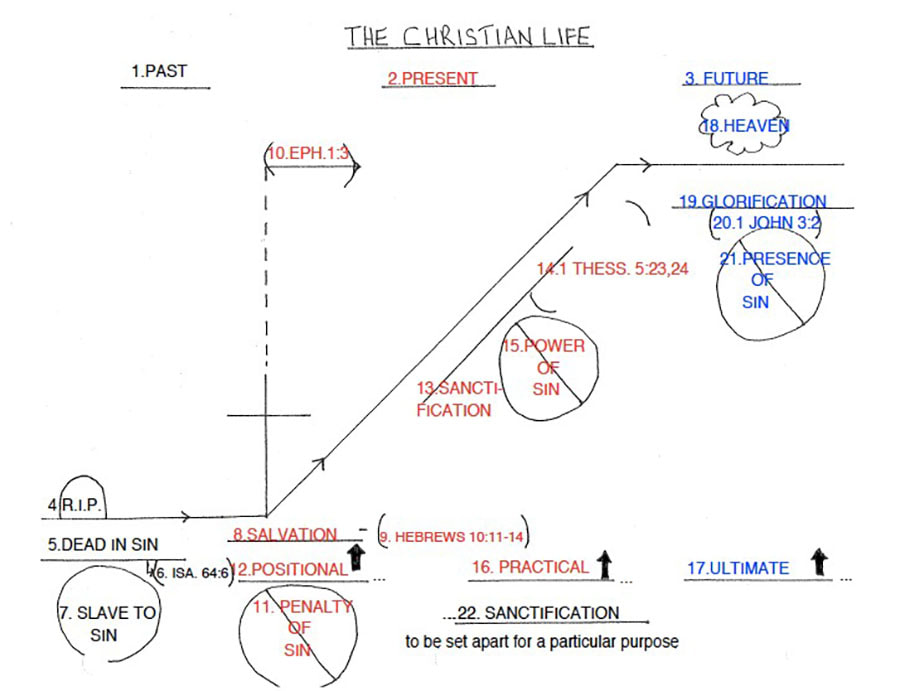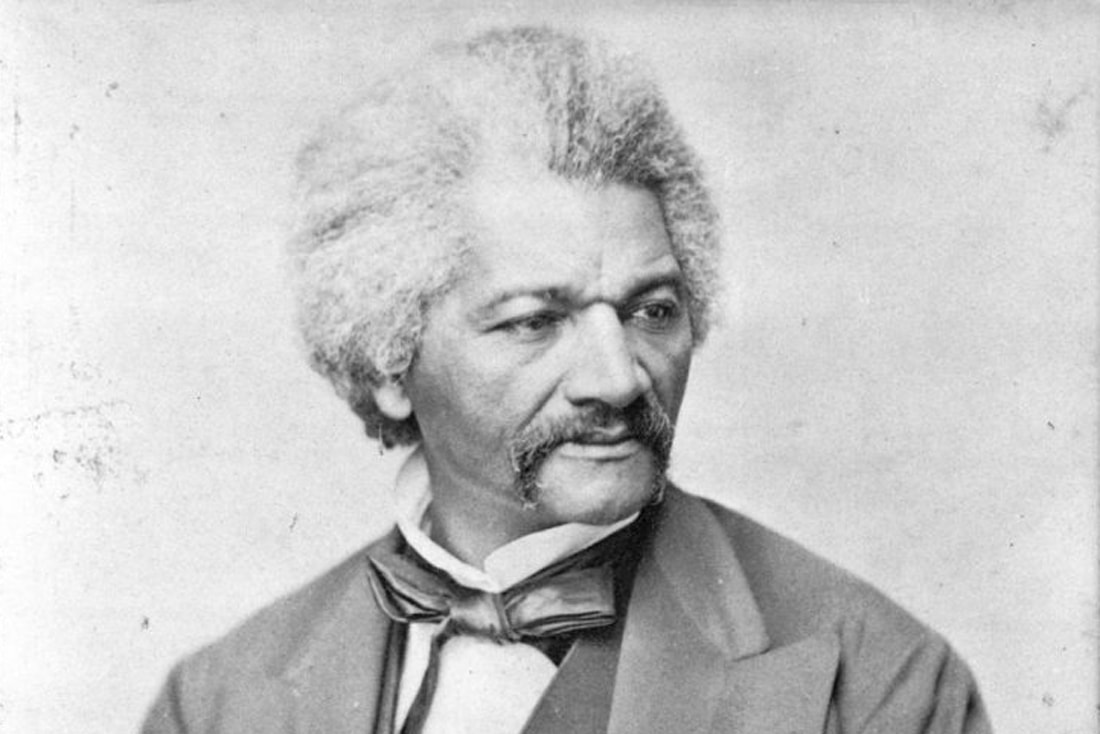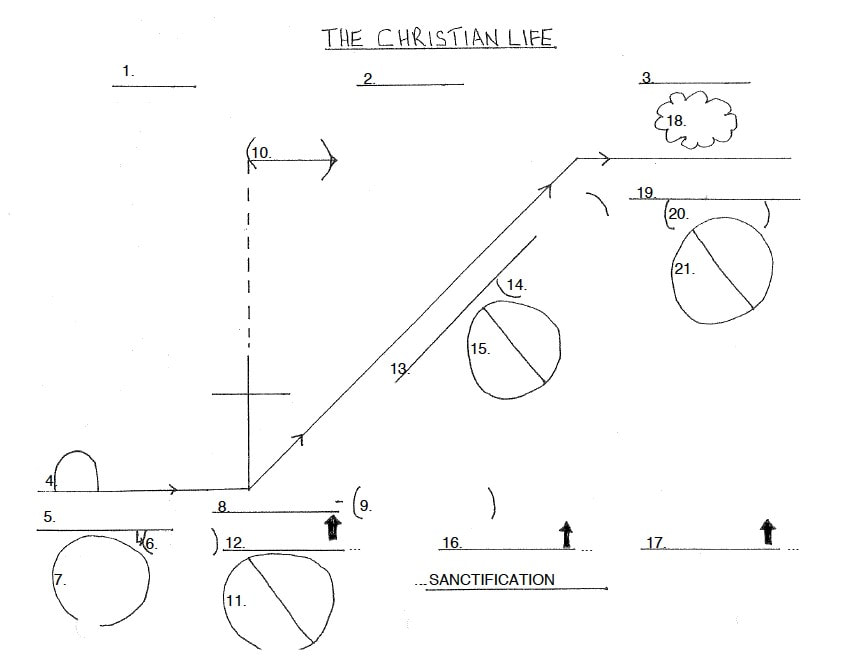|
Original watercolor painting by Ruxandra Ionce My grandma used to tell me I should learn how to be alone with myself. Everyone of us will go through seasons of loneliness and isolation for reasons beyond our control. These can be terrifying times, mostly because loneliness does not allow us to camouflage those deep places of our soul that we so successfully cover up with the noises of modern life. God often uses these times to confront us with the raw state of our souls, to confront us with who we actually are and what we actually have. In solitude, God worked in the lives of the heroes of faith sculpting, refining, and perfecting their characters and purifying their souls. In isolation, on the small island of Patmos, God revealed to John the future glory of the church. Isolation can be contemplative, peaceful, pleasant. God gave us the gift of imagination to use it according to Philippians 4:8 and fill our minds with beautiful and noble things. We do not suffer more today because our problems are greater than before. Instead, we suffer because the world is too loud and we lose control of the things we let in. We were made to live in a garden, surrounded by God's creations. However, for many of us it is not physically possible to escape our urban environment. There is a solution: we have Christ with us, beside us, around us. We can use our imagination to better comprehend the reality of Christ being next to us, to contemplate His beauty, and the work of His hands.
0 Comments
THE NINE-FLAVORED FRUIT DEVOTIONAL SERIES But the fruit of the Spirit is love, joy, peace, patience, kindness, goodness, faithfulness, gentleness, self-control; against such things there is no law. Galatians 5:22-23 (NASB) Paul wrote to the Believers in Galatia, now in modern day Turkey, about the dangers of legalism. He warned them that the gospel, plus works, was no gospel at all! We are also instructed that growing in the Christian life is not a matter of human strength, but of supernatural empowerment. As we ‘branches’ draw our daily life from Jesus, the Vine, the Spirit of God will produce in our lives the nine-flavored Fruit of the Spirit, one of the ‘flavors’ being JOY. This delicious flavor, craved by any who have ever tasted sadness, hopelessness or sorrow, is often disguised and served up as ‘happiness,’ These two flavors, while similar in appearance, can be worlds apart. Just bite into a grapefruit when you are expecting an orange! Remember, “grin and bare it” is not Joy...it is a sham. True Joy is experienced when we see things God’s way. The letter of Paul to the Believers in Philippi mentions the word, form or root of the word “JOY” fourteen times. To measure our understanding of, commitment to and whether Spirit-produced Joy is present in our lives, let’s look at it in “3-D”! 1st “D” - DEMANDED In Philippians 4:4, Paul tells the believers, “Rejoice in the Lord, always; again I will say, rejoice!” Paul does not ask, or suggest that we rejoice. He demands it! Who does he think he is, telling people to be happy?! Wait, he is not telling them to be happy. He tells them to rejoice. Paul was under house arrest, chained to a rotating group of assigned palace guards, and robbed of his freedom. When he was in prison, probably in stocks sitting in his own excrement, what did he do? He burst into song, singing songs of praise to God. He didn’t do this because he was happy, but because his JOY was greater. Happiness is based on our circumstances, on happenstance, on what is happening to us. JOY is based on Who we know. If we are seated with Christ in the heavenly places (Ephesians 2:6) then we no longer need to be “under these circumstances,” but instead we can live with God’s perspective of our lives...from above, with JOY! 2nd “D” - DELAYED In Philippians 2:16, Paul says how glad and grateful he is the Philippian Christians are clinging to and being faithful to the Word of God, to the end that, in the future, when the Day of Christ comes, that Paul’s JOY will be full, seeing that his life and labor and investing in them was not in vain, and that it mattered! Have you ever wondered if living the life you are called to in Christ is worth it? Thinking no one cares about your faithfulness to Jesus?! Dear brother and sister, Jesus said in Matthew 25:23 that one day, as you have been a faithful servant, He will say to you, “Well done, good and faithful servant...Enter into the JOY of your Lord!” Even Jesus endured the infinite agony of the cross for future JOY; “for the JOY that was set before Him [He] endured the cross, despising the shame, and has sat down at the right hand of the throne of God.” (Hebrews 12:2) “Runner when the road is long Feel like giving in, but you're hanging on Oh runner, when the race is won You will run into His arms” -Runner by Twila Paris 3rd “D” - DELIGHT True JOY must be expressed. Over and over in the Word we see that JOY is uncontainable! Praise, singing, dancing, shouting and even silence in the face of “indescribable joy”! As we are able to express the JOY that is ours in Christ. In spite of our circumstances, our happiness that has been missing has a chance to rise and join with the JOY that is greater. It will bring a personal reality and gladness that warms the soul! Is there anything more joyous than a wedding? It is comparable to the delight the bride experiences as she unites with her long awaited groom. “Like an apple tree among the trees of the woods, So is my beloved among the sons. I sat down in his shade with great delight, and his fruit was sweet to my taste.” (Song of Solomon 2:3) This is the Fruit called JOY. Happiness is wonderful! Joy is greater! SUGGESTED PRAYER “Lord, help me to find my JOY in living my life in Your Word, in my life in light of the soon return of your Son, and in the delight that comes from pleasing you, my Father!”
Photo credit: George Frances Schreiber Frederick Douglass and the Fourth of July On July 5, 1852, abolitionist and former slave Frederick Douglass took the stage at the Women’s Abolition Society in Rochester, New York. The oration that followed would not only be one of Douglass’s most remembered, but also one of America’s most remembered. The speech is often quoted among academic figureheads and celebrities alike. On the surface, it is often presented as an indictment of America. How well, however, do its critics actually know the speech? Furthermore, are Americans actually being given the entire content of the speech? Frederick Douglass was born into slavery circa 1818, in or near Cordova, Maryland. At an early age, he escaped from slavery and headed north where he eventually joined the Boston Abolition Society. Douglass later moved to Rochester, New York where he became a newspaper editor. A talented writer and orator, Douglass was later referred to as the most influential African-American of the Nineteenth Century. In his time, slavery was the greatest evil and the most controversial political subject. Throughout the first half of the Nineteenth Century, much tension surrounding the issue of slavery occurred. Various compromises were introduced in an effort to prevent secession or war. The United States gained much of its Western territory following the Mexican-American War in 1848. This further complicated the slavery question, continuing to polarize the anti-slavery and pro-slavery factions. INDEPENDENCE DAY: HOLIDAY OF HATE? In today’s age, the Progressive Left often asserts that celebrating the Fourth of July means to celebrate slavery and inequality. In their point of view, because slavery and racial inequality were present at the time of the American founding, it is wrong to honor a day of independence when not all people were actually free. Progressives insist America’s founding in general, with all its components - Declaration of Independence and Constitution included - were made only for White men. On July 5, 1852, Frederick Douglass delivered a speech titled, What to the Slave is the Fourth of July? For many, this oration is both viewed and used as an anti-American speech. Take, for example, the following excerpt, often used on social media: “What have I, or those I represent, to do with your national Independence?...This Fourth of July is yours, not mine...There is not a nation on earth guilty of practices more shocking and bloody than are the people of these United States at this very hour.” On the surface, this speech may seem as if Douglass was condemning American patriotism. In actuality, a thorough reading of its entirety reveals something different. Once the speech is fully examined, the reader may be surprised to learn that Douglass was condemning the evils practiced in America during his day, while simultaneously casting support to the founders, Declaration, and Constitution. THE NATION’S RINGBOLT At the start of the speech, Douglass acknowledged the importance of Independence Day to Americans, and called the Declaration of Independence the ringbolt to the chain of the nation’s destiny. He stated, “The principles contained in that instrument are saving principles. Stand by those principles, be true to them on all occasions, in all places, against all foes, and at whatever cost.” Douglass then turns his attention to the founders. Today, many progressives reject the founders and downplay their intellect. Douglass, however, held a different view of them. He said: “Fellow citizens, I am not wanting in respect for the fathers of this republic. The signers of the Declaration of Independence were brave men. They were great men, too - great enough to give fame to a great age. It does not often happen to a nation to raise, at one time, such a number of truly great men. The point from which I am compelled to view them is not certainly the most favorable; and yet I cannot contemplate their great deeds with less than admiration. They were statesmen, patriots, and heroes, and for the good they did, and the principles they contended for, I will unite with you to honor their memory. They loved their country better than their own private interests...Your fathers staked their lives, their fortunes, and their sacred honor on the cause of their country. In their admiration of liberty, they lost sight of all other interests. They were peace men; but they preferred revolution to peaceful submission to bondage. They were quiet men; but they did not shrink from agitating against oppression. They showed forbearance; but they knew its limits. They believed in order; but not in the order of tyranny...With them, justice, liberty, and humanity were “final;” not slavery and oppression. Their solid manhood stands out the more as we contrast it with these degenerate times. How circumspect, exact, and proportionate were all their movements! How unlike the politicians of an hour!” ADDRESSING THE PRESENT Following his vindication of the founders and the principles enshrined in the Declaration, Douglass turned his attention to the present. Slavery was, without dispute, the greatest moral and political issue in 1852. This is where Douglass began to stir the fiery passions among his fellow anti-slavery advocates. Since the 1830s, various politicians - notably within the Democratic Party - had embraced John C. Calhoun’s view of slavery. This belief asserted that slavery was a “positive good.” That is, good for both the master and the slave. Douglass whole-heartedly renounced this view, stating no one would possibly declare slavery to be good for their own selves. Douglass went on to make the claim that it was time for citizens to act in order to abolish slavery. In other words, it was time to shine the spotlight on the nation’s wrongdoing. To accomplish this, Douglass returned to the country’s most celebratory day, and asked: “What, to the American slave, is your 4th of July? I answer; a day that reveals to him, more than all other days in a year, the gross injustice and cruelty to which he is the constant victim. To him, your celebration is a sham…” Douglass continues to state that America is without rival when it comes to boasting about liberty, yet keeping people in bondage. At certain points, Douglass definitely hits home. For instance, at one point, he remarked, “You invite to your shores fugitives of oppression from abroad, honor them with banquets, greet them with ovations, cheer them, toast them, salute them, protect them, and pour out your money to them like water; but the fugitives from your own land you advertise, hunt, arrest, shoot, and kill...You can bear your bosom to the storm of British artillery to throw off a three-penny tax on tea; and yet wring the last hard-earned farthing from the grasp of the Black laborers of your country.” CALLING OUT THE ENABLERS Douglass then turned his attention to those who allowed slavery to reach its current condition. In 1850, Congress passed the Fugitive Slave Act. This proved a further blow to anti-slavery advocates and provided no legal safe haven for those seeking refuge from bondage. Douglass referred to this as slavery being “nationalized in its most horrible and revolting form.” He commented that all states had now become a hunting ground and that true liberty was in peril. Douglass then commented on religious liberty, as well as the fact that the church was often responsible for remaining silent on slavery. It is an unfortunate fact that, historically, the greatest opposition to liberty occasionally came from people within the religious establishment who twisted scripture to fit their own agenda. Douglass said, “A worship that can be conducted by persons who give shelter to the houseless, to give bread to the hungry, clothing to the naked, and who enjoin obedience to a law forbidding these acts of mercy, is a curse, not a blessing to mankind. The Bible addresses all such persons as ‘scribes, Pharisees, hypocrites who pay tithe of mint, anise, and cummin, and have omitted the weightier-matters of the law, judgement, mercy, and faith.’” Douglass remarked that churches that preached pro-slavery messages were even more dangerous than the infidel writings of figureheads such as Thomas Paine. A paraphrase of 2 Timothy 4:3-4 is sugar-coated preaching is dangerous to your soul. A GLORIOUS LIBERTY DOCUMENT One thing that both pro-slavery Democrats and Radical Republicans seemed to agree on was that the spirit of the U.S. Constitution protected and condoned slavery. One prominent abolitionist, William Lloyd Garrison, deemed the Constitution a “covenant with death and an agreement with Hell.” How did Frederick Douglass hold up on this issue? During his younger years, Douglass agreed with Garrison and other radical abolitionists. Like them, he viewed the Constitution as a document that encouraged property ownership of slaves. By 1852, however, his view had shifted entirely. He stated, “interpreted as it ought to be interpreted, the Constitution is a GLORIOUS LIBERTY DOCUMENT. Read its preamble, consider its purposes. Is slavery among them? Is it at the gateway? Is it in the temple? It is neither. While I do not intend to argue this question on the present occasion, let me ask if it be not somewhat singular that, if the Constitution were intended to be by its framers and adopters a slave-holding document, why neither slavery, slaveholding, or slave can be found anywhere in it.” Douglass later said, “Now, take the Constitution according to its plain reading, and I defy the presentation of a single pro-slavery clause in it. On the other hand, it will be found to contain principles and purposes entirely hostile to the existence of slavery.” SEEKING JUSTICE AMID DARK DAYS Douglass then said what is perhaps one of the most important lines in the entire oration. “Allow me to say, in conclusion, notwithstanding the dark picture I have this day presented of the state of the nation, I do not despair of this country.” Douglass remarked that he believed slavery would eventually come to an end, especially if the nation stayed true to the principles enshrined in the Declaration of Independence. Douglass lived to witness the end of American Slavery in 1865, and he then continued to serve his Lord and country as an impressive statesman. Perhaps his true character was most exemplified in 1877, when he met with his former master, Thomas Auld. Douglass forgave Auld for his past treatment of him and the two parted as friends. What to the Slave is the Fourth of July? is not, as Progressives have tried to sell it, a condemnation of America. Rather, it is a necessary criticism of a nation’s wrongdoing. Throughout history, all countries have experienced some form of sinful action. What makes America special is the fact that America has done more than any nation on earth to combat not only its own evils, but the evils of other nations, as well. Americans have defeated slavery, fascism, communism, and radical Islam, and saved countless individuals from tyranny. It is also important to remember that slavery still continues today in parts of Africa, the Middle East, and other locations of the world, in which Progressives remain virtually silent about. Douglass’s speech should always hold a special place in American memory, and may we never forget his iconic call to action: “I would unite with anybody to do right and nobody to do wrong.”
“You can get there, from here!” All that could be heard was the soothing, and yet somehow annoying droning of the engines as the plane cut through the evening sky. “Good evening, ladies and gentlemen, this is your captain speaking. I have some Bad News and I have some Good News. The bad news is we are lost. The good news is we are making excellent time!” Have you ever felt as though you were in a hamster cage, running as if your very life and happiness depended on it, only to recognize the obvious?...You are not getting anywhere! All too often, this is the sense of the struggling Christian. With discipline, intestinal fortitude, and good intentions they apply themselves to their life as a follower of Jesus Christ, only to feel that they are no closer to the ‘promised’ “victorious Christian life” then when they began their journey of faith. From ancient scrolled parchments, to folding maps, to trip booklets, to car navigation tools, to the ubiquitous smartphone maps and location apps everyone has access to, anyone can instantly determine where they are...physically. Where are we spiritually? This is a whole nother story. For the Christian, it is very easy to feel confused. Having embarked on their Christian journey by placing their trust in Jesus Christ as their necessary payment for sin, life still seems fraught with the same struggles that were present BC, Before Christ! Maps give information on where you are, where you have been, where you are going, and how to get there. It can provide relief if you are lost, instruction if you are confused and timing of arrival, for a hopeful sense of anticipation! Mapping the Christian Life can provide the same kind of benefits, from a spiritual perspective. Included in this article are two diagrams, or ‘maps.’ Map #1 is completed, from numbers 1 - 22, and Map #2 has numbered blanks for you to fill in yourself if later you would like to test your own comprehension.  Map #1 (Numbered & Complete) Breaking up the Christian Life into three tenses helps greatly. The (#1. Past) is inked in black because we are dead and separated from God because of our sin. The (#2. Present) is inked in red because of the shed blood of Christ for our sins. The (#3. Future) is inked in blue because we will be with Christ in the Heavens. The (#4. R.I.P.), Rest In Peace Tombstone illustrates that, according to Ephesians 2:1, “you were (#5. dead in your trespasses and sins).” Fallen man is not spiritually sick. He is spiritually dead and unable to live any kind of life, especially a perfect life which is required by a perfect God! Why does fallen man behave in evil ways? Because he is a (#7. Slave To Sin), and according to (#6. Isaiah 64:6), even his “righteous deeds are like a filthy garment.” (Look up what filthy garment Prophet Isaiah ben Amoz is referring to!) We all understand the bad things we do are ugly, to say the least. But God says because we are spiritually dead, even our good deeds are ugly as compared to the standard of His righteousness. We can, for a funeral, try to make a corpse in a coffin look alive and well and ‘peaceful,’ but it is not well. It is not sick. It is not peaceful. It is dead and has no life. So it is with man spiritually. He does not need reformation...he needs salvation! He does not need education...he needs resurrection! He does not need resuscitation… he needs regeneration! He does not need “good works”...he can’t do anything! He’s dead! This is the desperate predicament of mankind. This is why social reform is not the ultimate solution to man’s woes and ills. That is also why Jesus Christ came; to be the perfect substitute sacrifice for our sin that we needed in order to be reconciled to God and to spend eternity with Him. This is the Good News! The crux of the matter (lit. cross or resolution of a problem) on the Map of our Christian Life, is in fact the instrument of torture and execution itself was the Cross of Calvary. For the Believer, life and eternity changed there. The moment someone places their trust in Jesus Christ as their Savior, the (#11. Penalty of Sin) is completely paid for, (#8. Salvation) is forever secured because of Christ’s death, burial and resurrection. (#9. Hebrews 10:11-14) says in part that animal or ceremonial sacrifices “can never take away sins; but He [Christ], having offered one sacrifice for sins for all time, sat down at the right hand of God...for by one offering He has perfected for all time those who are sanctified.” Now, about this word, “sanctification”...what does it mean?! (#13. & #22 Sanctification) literally means “to make holy, to set apart for a particular purpose.” God says that I am holy. But I’m not. But I will be. Which one is it? The answer is, “Yes”! However, while our (#12. Position) spiritually is that we are (#10. Ephesians 1:3) “blessed with every spiritual blessing in the heavenly places in Christ,” and are seated “with Him in the heavenly places in Christ Jesus” (Ephesians 2:6), life often doesn’t seem very “heavenly”! (#12. Positionaly) I am holy in the eyes of God because He has declared me righteous in Christ. But in (#9. Practical) terms, I still struggle in the Christian Life, yes, and still sin. It is a progressive life where God changes me day by day to be conformed to the image of His Son--that is--to become more like Christ, moment by moment. (#14. 1 Thessalonians 5:23-24) says in part, that “the God of peace Himself [will] sanctify you entirely; and may your spirit and soul and body be preserved complete, without blame at the coming of our Lord Jesus Christ.” We are in the process of being fashioned into the (#17. Ultimate) state that is yet to come. No longer should the (#15. Power of Sin) rule over our lives. We have the Holy Spirit residing in us, convincing us of sin, comforting us in suffering, and empowering us in service in the life we are still living in this world! Then, in a moment, whether we pass from this life through the shadow called death, or at the glorious Second Coming of Jesus Christ, we shall be be changed through the (#19. Glorification) of our mortal bodies, we shall be changed to be like Him. (#20. 1 John 3:2) says, “Beloved, now we are children of God, and it has not appeared as yet what we will be. We know that when He appears, we will be like Him, because we will see Him just as He is.” Here is the great ‘wonderment’: From the (#1. Past) we have been born into God’s forever family by His Son. In the (#2. Present) we are being changed, moment by moment to be like Christ in this roller coaster ride of life, knowing one day in the (#3. Future) we will actually be delivered from the (#21. Presence of Sin) in (#18. Heaven)! Map #2 (Numbered & Blank Self-test) Do you better understand Mapping the Christian Life, or are you still a little lost?!...To test yourself, here are the answers to fill in: Words to number: __ POSITIONAL __ PRACTICAL __ ULTIMATE __ SANCTIFICATION __ PAST __ PRESENT __ FUTURE __ GLORIFICATION __ HEAVEN __ SALVATION __ 1 JOHN 3:2 __ REST IN PEACE __ SLAVE TO SIN __ DEAD IN SIN __ POWER OF SIN 22 SANCTIFICATION __ EPHESIANS 1:3 __ PRESENCE OF SIN __ PENALTY OF SIN __ HEBREWS 10:11-14 __ ISAIAH 64:6 __ 1 THESSALONIANS 5:23,24 How did you do on your test?! More importantly, how are you doing in your journey through the Christian Life? Remember, you are not where you were. You are closer to your destination. Knowing you will get there can make today an amazing adventure! Press on brothers and sisters! You are making progress, Pilgrim! You’re almost Home!
|
Archives
March 2024
DisclaimerThe views, information, and opinions expressed in this website are solely those of the individual contributors and do not necessarily represent those of TRINICY International. Categories
All
|
Content |
Programs |
© COPYRIGHT 2018-2023
ALL RIGHTS RESERVED. |









